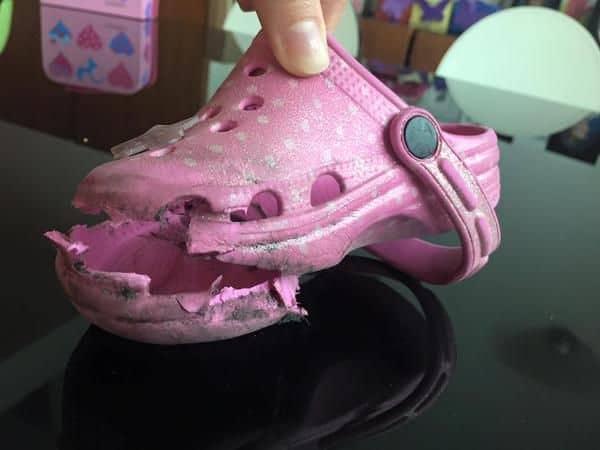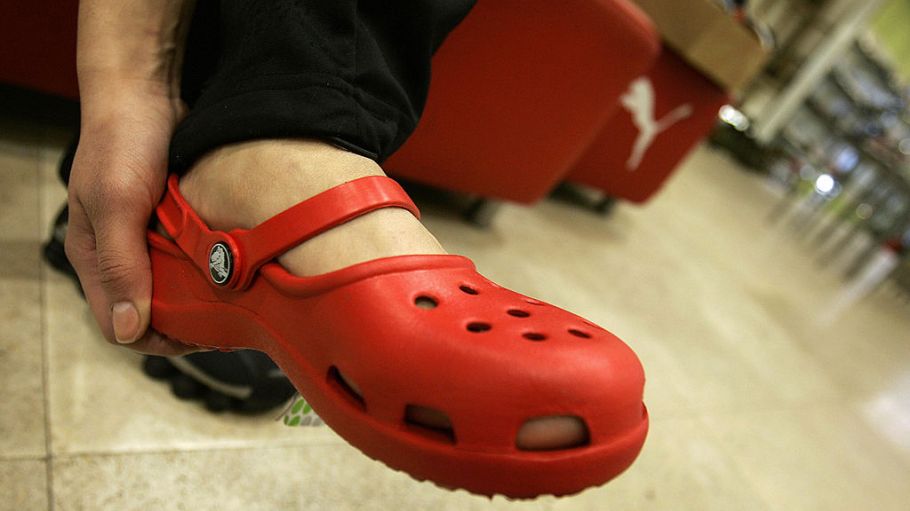One of America’s favorite casual footwear businesses has an unexpected problem that has surfaced in sunny California, where the weather is nearly always beautiful. A class action complaint has been filed against Crocs, a company well-known for their adaptable and lightweight footwear, alleging that the shoes shrink disproportionately when exposed to heat and water. Recent rulings by a federal judge in California allowed the action to move forward, alleging the firm misled customers about the longevity of its products.

Martha Valentine and Ruby Cornejo, two Californians, filed the action, claiming Crocs neglected to warn consumers that the shoes might shrink under common environmental conditions including heat, sunlight, and water. The plaintiffs contend that this omission contradicts the brand’s marketing, which positions the shoes as appropriate for hot, sunny, and damp weather exactly the conditions in which the shoes are said to malfunction.
Valentine and Cornejo’s lawsuit brings several serious accusations against Crocs, including:
- Fraudulent Concealment: Accusing Crocs of intentionally hiding the fact that their shoes could shrink under certain environmental conditions.
- Fraud: Alleging that Crocs knowingly misled consumers by misrepresenting the durability and suitability of their footwear.
- Negligent Misrepresentation: Claiming that Crocs carelessly misrepresented their products to consumers.
- Breach of Express and Implied Warranties: Suggesting that the shoes do not meet the standard quality or performance expectations guaranteed by the brand.
These allegations point to a potential discrepancy between how Crocs shoes are marketed and how they perform in real-world conditions, particularly in warm climates like California.
This case has had a convoluted and difficult legal path due to numerous procedural obstacles. Crocs has made two attempts to have the action dismissed, claiming that the plaintiffs’ claims are not supported by enough information. But in the most recent series of court cases, U.S. District Judge Trina Thompson decided that the plaintiffs’ arguments had validity, so the lawsuit could proceed.
Judge Thompson stated in her decision that the plaintiffs had sufficiently described their claims in the amended complaint, including the advertising and representations they said they had relied upon. This degree of specificity was essential in fending off Crocs’ motion for dismissal.
The judge’s decision to permit the class action case to move forward is crucial because it paves the way for a more thorough investigation of Crocs’ product performance and advertising strategies. The decision implies that the discovery process, in which both sides will likely depose witnesses and acquire additional information, will now proceed. This stage is crucial because it will shed more light on the validity of Crocs’ defenses and the plaintiffs’ allegations.
Depending on how the parties evaluate their chances after discovery, the case may eventually be settled out of court or go to trial. As part of a settlement, Crocs may agree to pay back harmed customers and possibly alter its marketing strategies. On the other hand, a trial might result in a more conclusive decision about the legitimacy of Crocs’ actions, which might have an impact on how instances of this kind are handled going forward.
Attorneys Seth Adam Safier, Anthony J. Patek, and Kali Backer lead the Gutride Safier LLP team that is defending the plaintiffs. Their background in class action and consumer rights litigation will be crucial as this case moves through the federal courts.
Judge Thompson’s decision to permit the Crocs shrinking shoe lawsuit to proceed is a turning point in the legal battle against one of the most well-known shoe businesses. As the legal procedures go, they will not only shed light on the concerns pertaining to consumer rights and corporate transparency, but they will also establish a standard for how businesses promote their goods in settings where environmental factors could impact product performance. For the time being, customers will need to closely monitor the conclusion as it may have an impact on their future purchasing decisions, thus Crocs will need to get ready to defend its brand integrity and reputation in court.
Read Also – Police Are Investigating A Shooting At A Los Angeles Gym

